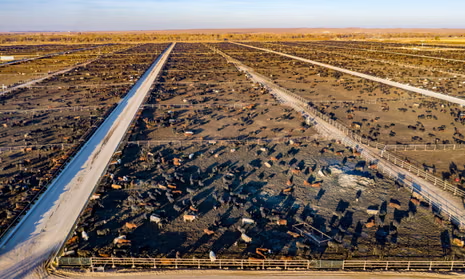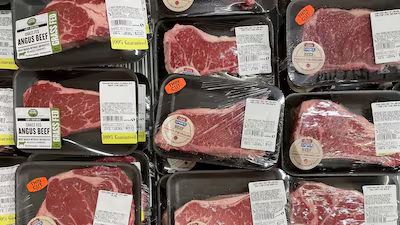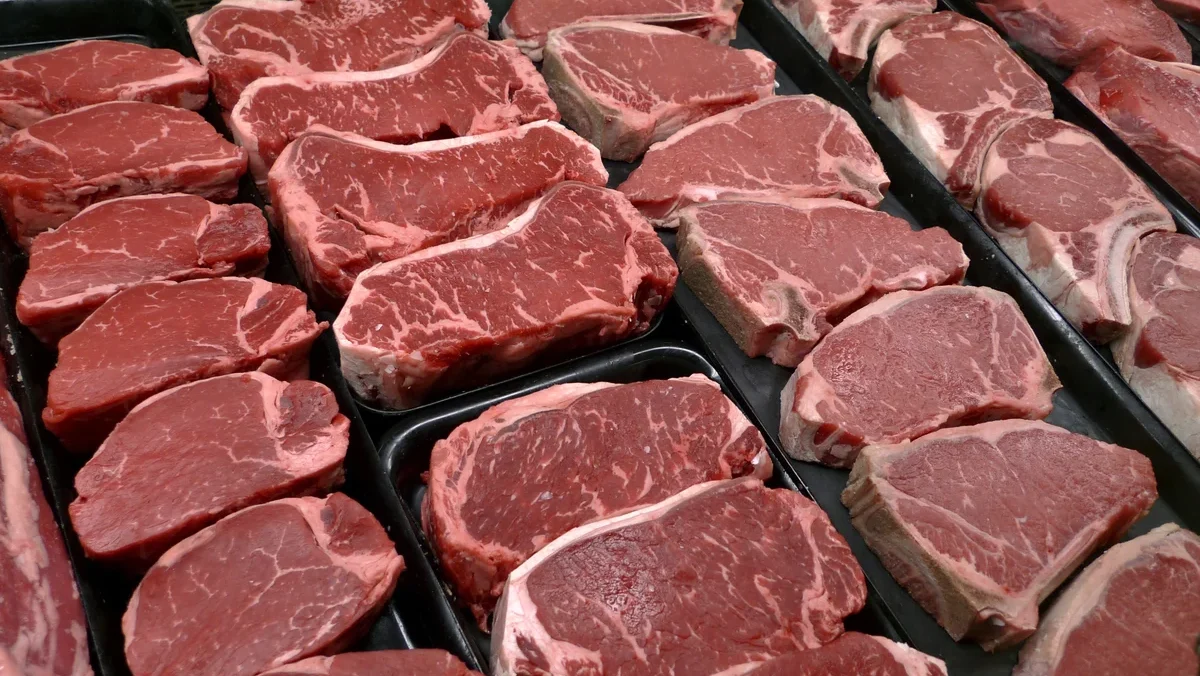Global meat consumption has skyrocketed in recent decades, fueled by rising incomes, urbanization, and the growing popularity of high-protein diets. While this trend may seem harmless on the surface, researchers from the Gulf region have been sounding the alarm. Their concerns go beyond simple health warnings they see a complex web of environmental, social, and economic issues tied to how the world produces and consumes meat.
The Gulf region, historically associated with oil wealth and rapid development, is now showing leadership in sustainable food discussions. Scholars and policymakers here are increasingly emphasizing that the high demand for meat is unsustainable, both globally and locally. They argue that the current trajectory threatens not only human health but also the delicate ecosystems of the planet.
What makes the Gulf perspective unique is their focus on extreme environmental conditions, scarcity of natural resources, and the region’s dependence on food imports. Unlike countries with abundant arable land and water, Gulf nations face constraints that magnify the risks associated with global meat production.
Environmental Impact: A Regional Perspective
One of the most pressing concerns raised by Gulf researchers is the environmental cost of meat production. Livestock farming contributes significantly to greenhouse gas emissions, with methane from cattle being a major culprit. Beyond climate change, meat production demands vast amounts of water, land, and feed crops.
In arid regions like the Gulf, water scarcity is a persistent challenge. Producing just one kilogram of beef can require thousands of liters of water when factoring in feed crop irrigation. This is not just an abstract statistic; it directly impacts the region’s already limited water resources. Researchers argue that continuing with high meat consumption patterns is not sustainable for countries that rely heavily on water imports or desalinated water, both of which are costly and energy-intensive.
Land use is another issue. Meat production often necessitates deforestation or the conversion of natural habitats into grazing or feed crop areas. Although the Gulf does not have extensive forests compared to tropical regions, the import of feed crops such as soy indirectly drives deforestation abroad. This global ripple effect highlights how Gulf consumption contributes to environmental degradation worldwide.
Biodiversity loss is a further concern. Intensive livestock farming reduces natural habitats and puts wildlife at risk. Gulf researchers point out that, even if the environmental impacts are physically distant, they are morally and economically linked to the region’s dietary choices.
Health Implications: Beyond the Plate
The human health consequences of excessive meat consumption are well-documented, and Gulf researchers emphasize the urgency of addressing them. Diets heavy in red and processed meats have been linked to cardiovascular diseases, diabetes, obesity, and certain cancers.
In the Gulf countries, lifestyle diseases such as obesity and diabetes are already prevalent due to sedentary habits and calorie-dense diets. Researchers argue that reducing meat intake is a practical, preventive health measure that can significantly improve public health outcomes.
The promotion of balanced diets rich in vegetables, legumes, whole grains, and lean proteins is central to this argument. Not only does this reduce the risk of chronic disease, but it also introduces more nutrient diversity. Plant-based diets provide fiber, antioxidants, and essential vitamins that are often lacking in high-meat diets.
Public health campaigns in the Gulf have begun highlighting these benefits. Nutritionists and researchers encourage communities to view food as medicine, emphasizing moderation and sustainable choices rather than strict elimination of meat.

Economic and Social Dimensions of Meat Consumption
The meat industry is a significant economic player globally. It generates employment, supports trade, and sustains livelihoods for millions. In the Gulf, however, the economic calculus is different. The region imports most of its meat, making high consumption expensive and economically vulnerable to global supply shocks.
Researchers highlight the long-term economic risks tied to unchecked meat consumption. Healthcare costs related to diet-induced diseases, environmental cleanup, and climate mitigation are substantial. By addressing consumption patterns now, Gulf countries can reduce future economic burdens.
Socially, food is deeply embedded in culture. Meat is often associated with celebration, status, and tradition. Changing consumption habits is therefore not just an economic or health decision but a cultural one. Gulf researchers advocate for culturally sensitive strategies that respect traditions while promoting healthier, more sustainable practices.
Alternative proteins, such as plant-based meats and lab-grown options, are gaining attention as both economic opportunities and social solutions. These industries could create new jobs, reduce dependency on imports, and align with environmental and health goals simultaneously.
The Global Context: Why Gulf Researchers Are Concerned
While the Gulf faces local environmental and economic constraints, the concern is inherently global. High meat consumption in Europe, North America, and emerging economies drives climate change, deforestation, and biodiversity loss worldwide. The Gulf, despite its small geographic size, has a stake in these outcomes because environmental crises do not respect borders.
Gulf researchers are particularly concerned about the global water footprint of meat. Importing meat effectively imports water-intensive production practices from countries where water scarcity is also an issue. This creates global interdependencies that make the world more vulnerable to resource shortages.
The call for reduced meat consumption is thus both a local necessity and a global responsibility. By leading in awareness and policy innovation, Gulf countries can influence international dialogue on sustainable diets.
Innovative Solutions: Sustainable and Alternative Proteins
Recognizing the need for change, Gulf researchers are actively exploring innovative alternatives to traditional meat. Plant-based proteins, such as soy, lentils, chickpeas, and pea protein, offer nutritious substitutes with a fraction of the environmental impact.
Lab-grown meat, also known as cultured meat, is another promising avenue. Produced in controlled environments from animal cells, lab-grown meat replicates the taste and texture of traditional meat without the associated greenhouse gas emissions and water demands.
Investing in these alternatives is not just an environmental strategy but an economic one. The global market for sustainable proteins is expanding rapidly, and Gulf countries are positioning themselves as leaders in research, development, and commercialization.
Researchers also emphasize public education. Changing consumer habits requires awareness campaigns that highlight the health, environmental, and social benefits of alternative proteins. Taste tests, cooking classes, and media campaigns are being proposed to make these foods mainstream and culturally acceptable.

Policy Interventions: Leading by Example
Policy interventions are crucial in shaping sustainable meat consumption. Gulf researchers advocate for a multi-pronged approach including taxation on high-emission meats, subsidies for plant-based alternatives, and mandatory nutrition labeling.
Public procurement policies are another tool. Schools, hospitals, and government institutions can lead by example, offering more plant-based options and reducing meat-heavy meals. Such policies create normalized environments for sustainable choices.
Investment in research is equally critical. Funding local studies on sustainable agriculture, alternative proteins, and nutrition science can generate innovations that are culturally and climatically relevant to the Gulf region.
Cultural Shifts: Embracing Sustainability Without Losing Tradition
One challenge is reconciling cultural traditions with sustainability. Meat is central to many Gulf celebrations, rituals, and family gatherings. Researchers emphasize that reduction, rather than elimination, is key.
Cultural campaigns can highlight moderation and mindfulness in consumption. For example, promoting smaller portions, sharing dishes, and integrating more plant-based meals can preserve tradition while reducing environmental and health risks.
Media, influencers, and community leaders play a pivotal role in shaping perceptions. By framing sustainable consumption as modern, responsible, and aspirational, researchers hope to make it a social norm.
Conclusion: A Unified Approach for a Healthier Future
The concerns raised by Gulf researchers about global meat consumption reflect an intersection of health, environmental, economic, and cultural factors. Addressing these challenges requires coordinated action at the individual, community, national, and global levels.
By promoting balanced diets, investing in sustainable food technologies, implementing supportive policies, and respecting cultural traditions, Gulf countries can lead by example. Reducing meat consumption is not just a health recommendation but a moral and practical imperative for a sustainable future.
The Gulf perspective serves as a reminder that no region exists in isolation. Our dietary choices have global repercussions, affecting climate, biodiversity, public health, and economies. By taking informed, conscious steps today, we can contribute to a world that is healthier, more sustainable, and more equitable for future generations.
Ultimately, the call from Gulf researchers is one of hope and empowerment. Change is possible, but it requires awareness, innovation, and collective commitment. As more countries and communities heed this call, the dream of a balanced, sustainable, and resilient global food system moves closer to reality.
Do follow Gulf Magazine on Instagram.
Also Read – “Kuwait Changes Healthcare Rules: Visit Visa Holders Must Pay Privately!”



